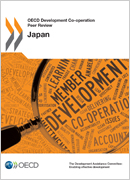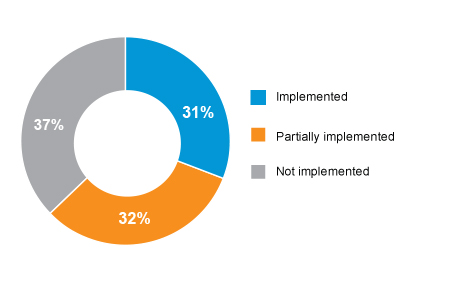Development
Japan - DAC Peer Reviews of Development Co-operation, 2014
|
|||||
About
|
Implementation of
|
|
Related links |
Japan's global leadership and influence in disaster risk reductionJapan makes good use of its extensive knowledge and long history of disasters, including the devastating 2011 Great East Japan Earthquake and tsunami, to drive the global agenda on disaster risk reduction and comprehensively incorporate risk reduction elements across all its programming. The National Security Strategy commits Japan to international leadership on disaster management, consolidating its international commitments to human security. On the global stage, Japan champions the Hyogo Framework for Action (UN, 2005) and will host the third United Nations World Conference on Disaster Risk Reduction in Sendai, where the global community will agree the post-2015 framework for disaster risk reduction. Risk reduction is also an important pillar of Japan’s own co-operation programme. Dedicated risk reduction programmes are funded through concessional loans, grants and public private partnerships, supported by JICA technical experts, to facilitate the sharing of Japan’s superior experience and knowledge in this area. Other development projects are systematically disaster proofed, using tools such as JICA’s disaster risk assessment and adhering to JICA’s disaster management policy (JICA, 2012), which outlines the link between resilient societies and sustainable development. Risk reduction targets all layers of society, from governments down to local authorities and communities. Japan clearly has good experience to share with other donors in this important area.
|
Related Documents

